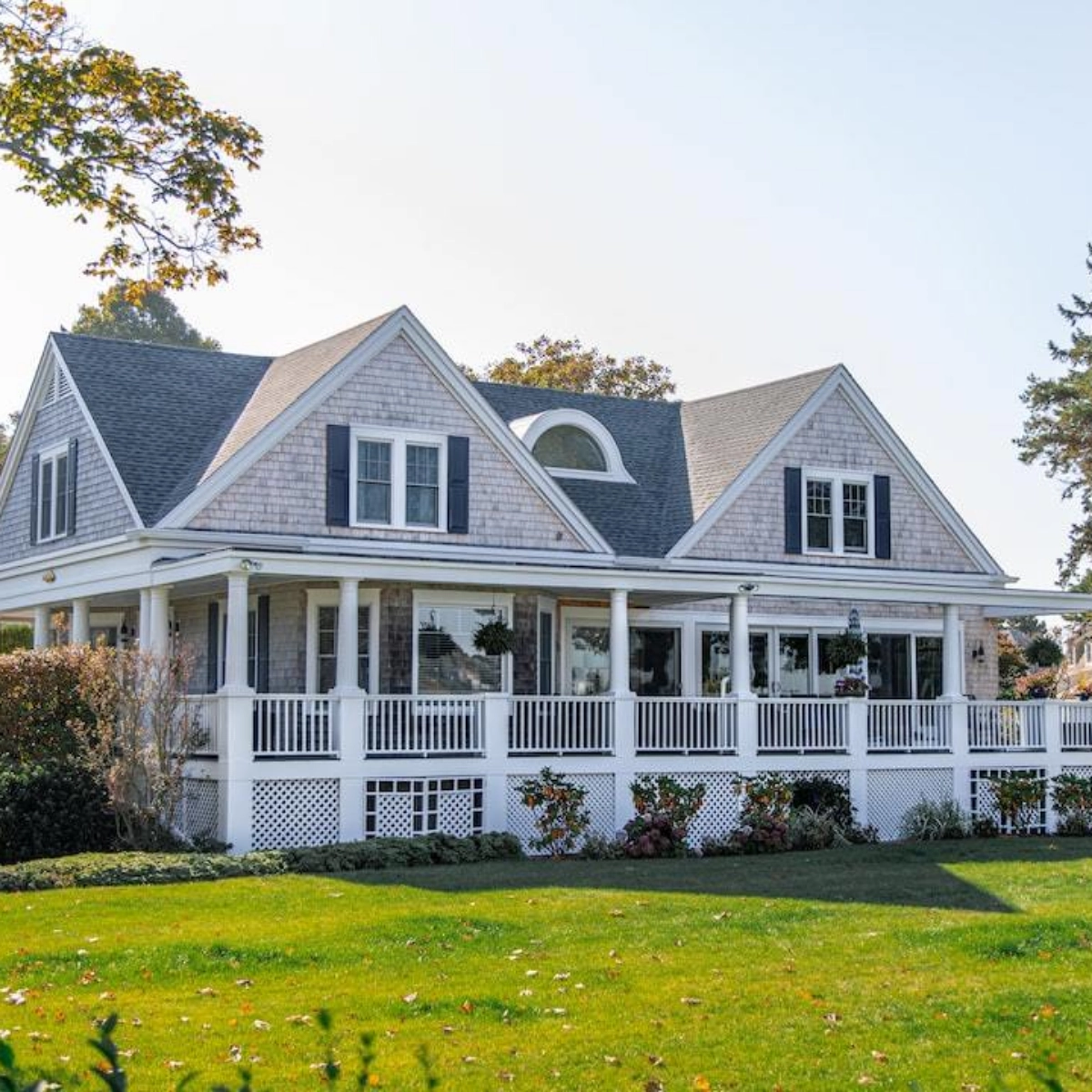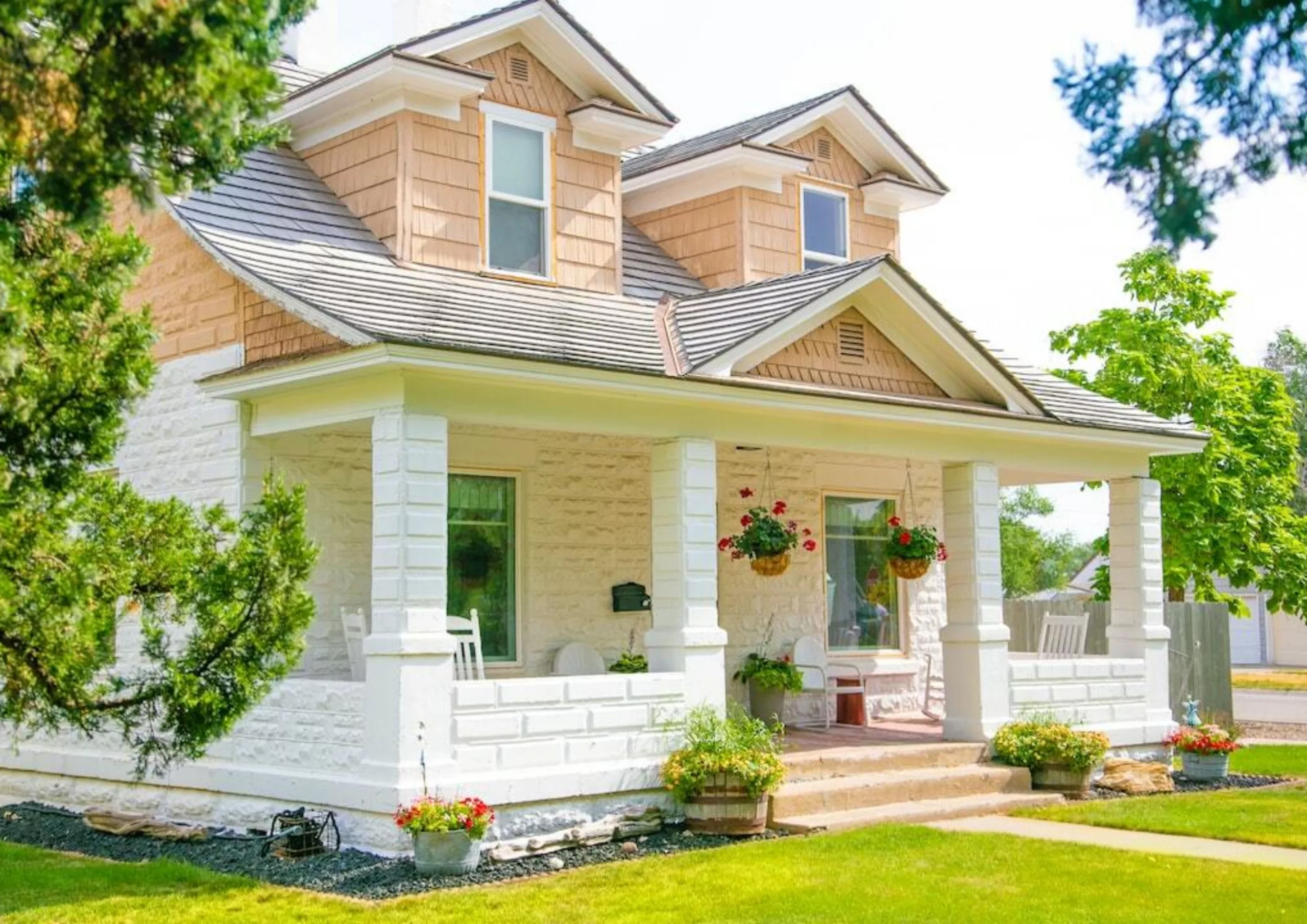Today's Mortgage Rates
Simplify your mortgage by optimizing your income, assets, and credit
Mortgage Interest Rates
Understanding the factors influencing mortgage rates is crucial for anyone seeking a mortgage in Nebraska. Whether you’re a first-time homebuyer or refinancing, knowing these influences can empower you to make informed decisions and potentially save thousands over your loan’s duration.
Key influences of mortgage rates:
- Credit Score: Typically, the higher the score, the lower the rate or cost.
- Loan-to-Value: In combination with credit scores, the lower the loan-to-Value, the lower the interest rates or loan costs.
- Loan Type and Term: Government-backed loans, along with shorter-length loans, will usually have lower mortgage rates.
- Economic Factors: Inflation, economic growth or contraction, and the Federal Reserve’s monetary policies can all influence rates.
Complete the form below to receive multiple interest rate options tailored to your needs, empowering you to make the best decision possible.
How often do mortgage rates change?
Because there are a number of factors that affect interest rates, mortgage rates may fluctuate daily or even hourly. The overall health of the housing market, changes in the bond market, and inflation rates are a few examples of these variables. Because of these market dynamics and economic conditions, mortgage rates can fluctuate frequently.
Can you negotiate mortgage rates?
Interest rates are primarily set by the market and your credit profile. The best route would be to plan ahead and focus on your credit history and score. Increasing your credit score could save you thousands at closing and much more over the life of your home loan. If your lender offers it, purchasing mortgage points can also be an effective strategy for negotiating a lower interest rate. You might be able to reduce your interest rate and monthly mortgage payment by paying a portion of the interest upfront. For example, a mortgage point can significantly lower the lifetime cost of your mortgage. One point is equal to 1% of the loan amount.
When should I lock my mortgage rate?
In many situations, locking in a mortgage rate is advised to minimize risks and offer financial stability. It is a good idea to lock in your mortgage rate when interest rates are trending higher. This will shield you from any increases above and beyond the rate you were initially approved for. Furthermore, in order to protect yourself from any potential rate hikes that may arise from the Federal Reserve meeting, it might be prudent to lock in your rate in advance if one is scheduled. A stable and predictable monthly mortgage payment is guaranteed when you lock in your rate, providing additional financial certainty and peace of mind. Furthermore, locking in your rate is a wise move if your closing date has already been set and you do not anticipate any delays in the process. This will protect you from unforeseen changes affecting your final mortgage terms.
Lincoln, NE
Omaha, NE
Nebraska
For homeowners and homebuyers in Lincoln, NE, Capital City Mortgage offers tailored mortgage solutions designed to meet the unique needs of this growing community. With a local office established in 2003, their team provides personalized service, ensuring clients receive the best interest rates and loan products that align with their financial goals. Whether you’re a first-time homebuyer or looking to refinance, Capital City Mortgage’s expertise and commitment to transparency make the mortgage process seamless and stress-free.
In Omaha, NE, Capital City Mortgage extends its exceptional mortgage services to cater to the diverse housing market of the state’s largest city. Since opening their Omaha branch in July 2022, they have been dedicated to helping clients navigate the complexities of home financing. By offering a wide array of loan options—including conventional, FHA, VA, USDA, and jumbo loans—they ensure that every client finds a mortgage solution that fits their specific needs. Their local presence and understanding of the Omaha market enable them to provide competitive rates and superior service.
Statewide, Capital City Mortgage serves the entire Nebraska community by providing comprehensive mortgage solutions that make homeownership accessible and affordable. Their commitment to offering multiple loan products and collaborating with several lenders ensures that clients across the state receive optimal interest rates and loan terms. With a focus on transparency, regular communication, and a streamlined loan process, Capital City Mortgage stands out as a trusted partner for Nebraskans embarking on their homeownership journey.
Home Loan Products
Simplified Loans, Smarter Homeownership
Conventional
FHA
VA
USDA
Jumbo
Non-QM

Conventional Loans
Unlock the benefits of homeownership with a flexible, competitive conventional loan. With down payments as low as 3% and no mortgage insurance at 20% down, you save more over time. Higher loan limits and great rates make it a top choice. Contact Capital City Mortgage today to start your journey with confidence!

FHA Loans
An FHA loan makes homeownership possible with just 3.5% down and flexible credit requirements. Perfect for first-time buyers, it offers low rates and easier qualification. As mortgage brokers in Lincoln and Omaha, we secure some of the best pricing to save you more. Contact us today to explore your FHA loan options!

VA Home Loans
VA loans offer veterans and active-duty military zero down payment, low interest rates, and no PMI—making homeownership more affordable. At Capital City Mortgage, we specialize in securing the best VA loan rates in Lincoln and Omaha. You’ve earned these benefits—let us help you take advantage of them. Contact us today to get started!

USDA Mortgages
USDA home loans offer 100% financing, low rates, and affordable payments for buyers in eligible rural areas. With flexible credit guidelines and no reserve requirements, it’s a great option for low-to-moderate-income borrowers. At Capital City Mortgage, we’ll help you navigate the process and secure the best deal. Contact us today to see if you qualify!

Jumbo Loans
Jumbo loans provide the financing needed for luxury homes and high-value properties, exceeding conventional loan limits. With flexible options for high-income borrowers, they’re ideal for competitive markets. At Capital City Mortgage, we’ll guide you through qualification and secure the best terms. Ready to finance your dream home? Contact us today to explore your jumbo loan options!

Non-QM Mortgages
Non-QM loans offer flexible financing for self-employed borrowers, those with credit events, or non-traditional income. With alternative income verification and diverse loan options, they provide solutions beyond conventional mortgages. Capital City Mortgage specializes in helping you navigate Non-QM loans to fit your needs. Contact us today to explore your options and achieve homeownership on your terms!
